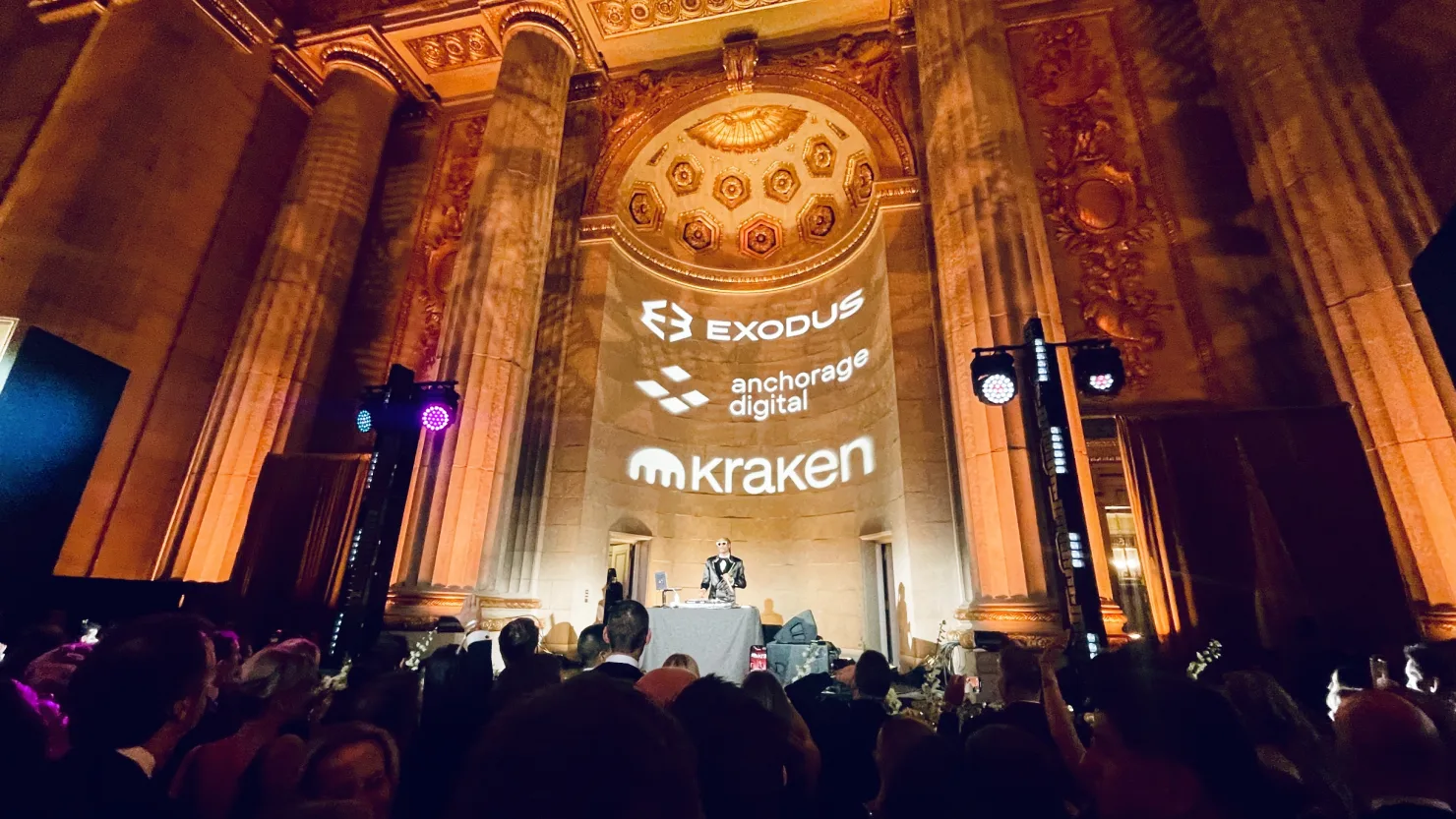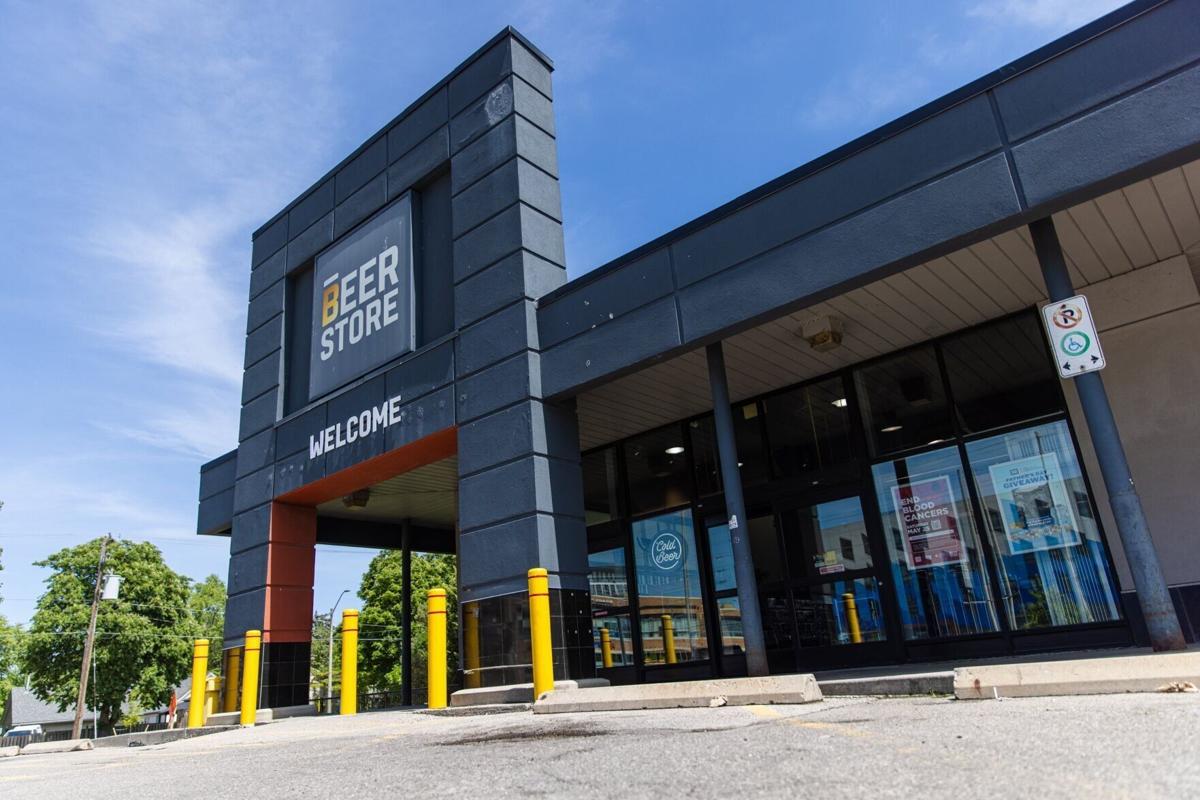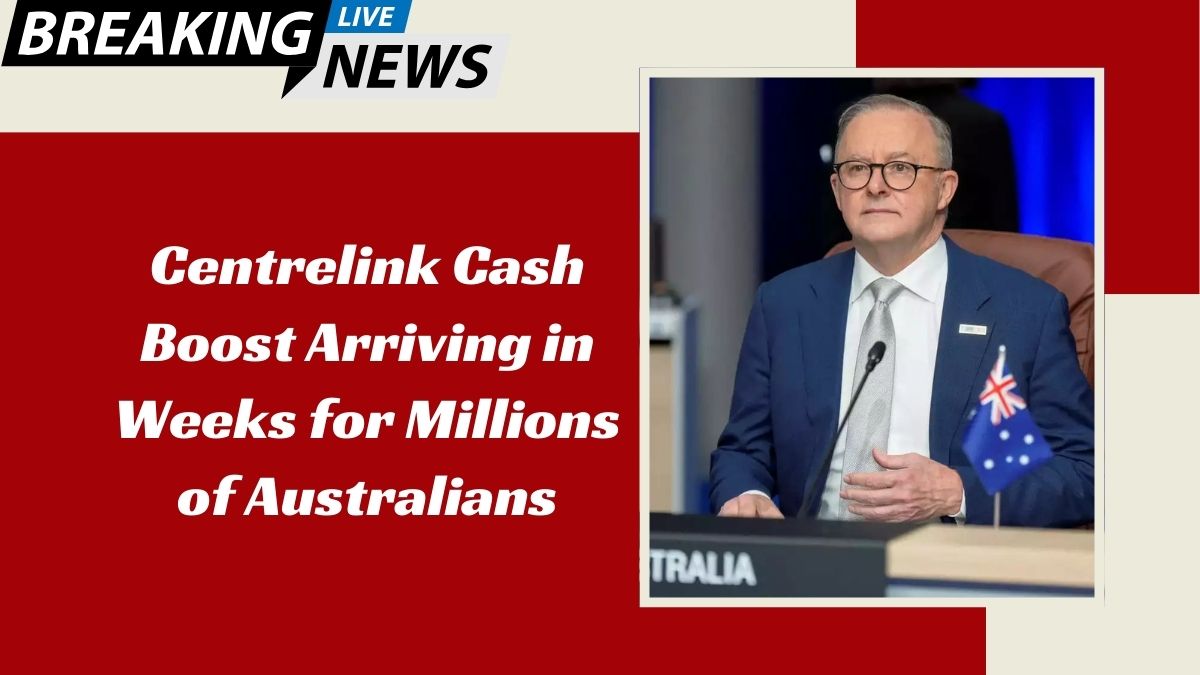Trump’s crypto-frenzied inauguration weekend makes first family billions of dollars richer
- The Trump family’s meme coins launched over the weekend showed how the incoming president plans to take advantage of looser regulations.
- Ahead of the inauguration, members of the administration rubbed elbows with top industry leaders at the Crypto Ball.
- “The reign of terror against crypto is over,” David Sacks, a venture capitalist and the new White House AI and crypto czar, told the crowd.
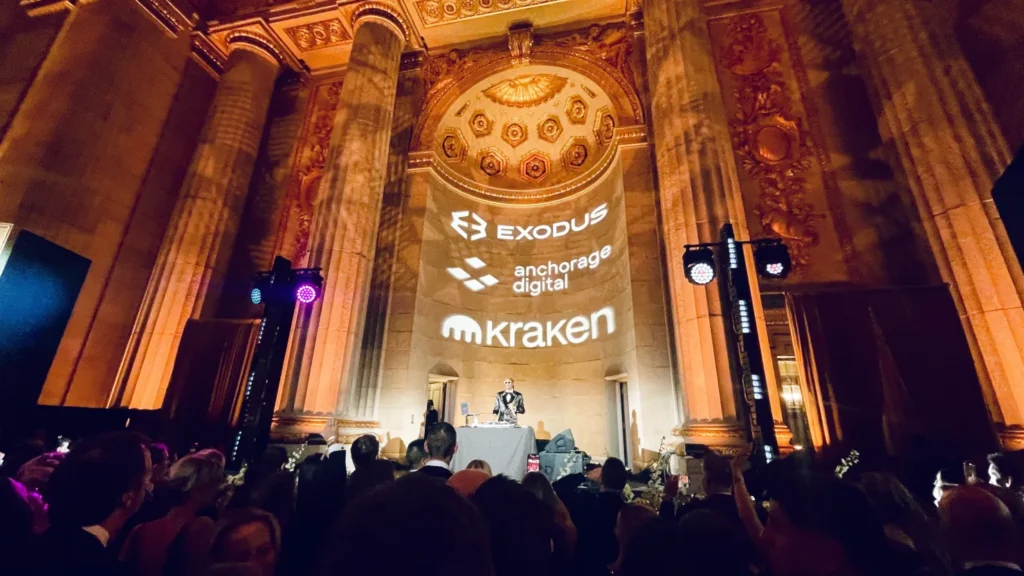
As the crypto industry celebrates the arrival of a new administration in Washington, D.C., nobody is taking quicker advantage of the coming changes than the person leading the charge: President Donald J. Trump.
On Friday night, crypto A-listers rubbed elbows with political elites and members of Trump’s inner circle at the Crypto Ball, held at the opulent Mellon Auditorium, just down the street from the White House.
Meanwhile, Trump’s net worth was about to explode from an asset that, up to that point, didn’t exist. The same night of the party, the incoming president launched $TRUMP, a meme coin built on the Solana platform. Its market cap over the weekend climbed past $14 billion. Like with other meme coins, there’s no underlying product. Trump told his followers in a social media post, “It’s time to celebrate everything we stand for: WINNING!”
The website for $TRUMP says 80% of the coins are held by the Trump Organization and affiliates.
Inside the Crypto Ball were some of the leaders of the platforms allowing ordinary investors to buy into Trump’s newest project. They included Coinbase CEO Brian Armstrong and Kraken co-founder Jesse Powell.
Trump wasn’t done after one token.
On Sunday came the introduction of $MELANIA, named after the first lady. The coin quickly spiked more than 40%, surpassing $2 billion in value. Both the Trump and Melania coins have dropped significantly from their highs.
Then there’s World Liberty Financial, a decentralized finance project endorsed by the Trump family, which hiked its token price from 1.5 cents to 5 cents and released an additional 5 billion tokens for sale. The project, initially launched in September, has raised more than $300 million in total sales so far, according to blockchain firm Arkham Intelligence.
The Trump family gets 75% of World Liberty’s crypto coin revenue, according to the project’s founding document. On-chain data shows millions of dollars worth of token transfers to Coinbase’s institutional custody provider.
“We’re making routine movements of our crypto holdings as part of regular treasury management, payment of fees and expenses, and to address working capital requirements,” World Liberty said in a statement.
CNBC reached out to Donald and Melania Trump earlier Monday and didn’t receive a response.
‘Reign of terror’
In the period of 48 hours, the Trump family’s net worth surged by billions of dollars, based on holdings of its just-launched digital assets, underscoring the unregulated nature of cryptocurrencies and the president’s ability to use his fame, power and newfound partnership with the nascent industry to enrich himself, his family and his allies at the flip of a switch.
Broader market enthusiasm has been expressed in the price of bitcoin, which surged to an all-time high hours before the inauguration to nearly $110,000. Crypto industry leaders and investors emerged as some of Trump’s biggest supporters in the campaign in an effort to influence future policies and to ease the restrictive regulations imposed during the Biden administration. In July, Trump delivered the keynote at the Bitcoin Conference in Nashville, Tennessee.

“The reign of terror against crypto is over,” David Sacks, a prominent Silicon Valley investor and the new White House AI and crypto czar, told the packed D.C. ballroom on Friday night. His comments were met with applause that echoed beneath the Mellon Auditorium’s soaring columns.
Sacks, an earlier Trump critic who said the events of Jan. 6, 2021, had “disqualified” him from being a candidate at the national level, threw his weight behind Trump last year. He hosted a high-profile fundraiser at his San Francisco mansion in June and regularly promoted the Republican candidate on the popular “All-In” podcast.
“The beginning of innovation in America for crypto has just begun,” Sacks added on Friday.
On X, formerly Twitter, conversations were lighting up about the new $TRUMP coin. There was plenty of skepticism from those in and around the industry.
“Trump needs to fire his crypto advisors, from top to bottom and replace with people who know what they are doing,” wrote Gabor Gurbacs, founder of digital asset firm Pointsville, in a post on X. “The memecoins cost the US, the presidency and his family a lot of credibility and the consequences haven’t even started.”
Mark Cuban, the billionaire former tech entrepreneur and part owner of the Dallas Mavericks, commented on the apparent lawlessness of it all. Cuban, a longtime independent who became a vocal supporter of Democratic nominee Kamala Harris, said the coins are particularly harmful to the crypto industry in its effort to prove its legitimacy.
“Hello every scam targeted at everyone and anyone who has no clue about crypto,” he wrote.
But at the pre-inauguration party, Trump’s new coin wasn’t much of a topic. Rather, the chatter centered on the broader implications of Trump’s policies, which promised to dismantle years of regulatory gridlock in the Biden administration.
“Two years ago, everyone thought crypto was dead,” said one attendee who asked not to be named in order to speak candidly on the topic. “A year ago, we were begging for help, and this weekend, we’re on top of the world.”
Crypto firms made substantial contributions to Trump’s inaugural fund, signaling their enthusiasm. Ripple donated $5 million in digital tokens, while Coinbase, Kraken, and Circle each gave $1 million. Online brokerage Robinhood contributed $2 million.
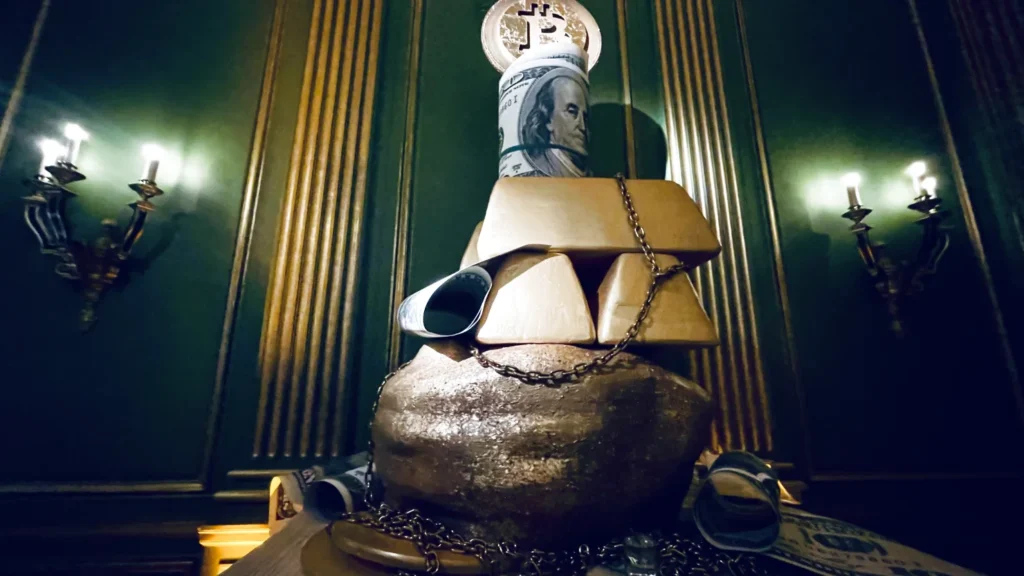
Coinbase and Kraken have both been battling the SEC in court. Robinhood received a Wells Notice in May related to its U.S. crypto business, which is typically one of the final steps before the SEC issues formal charges. Ripple has been in a years-long legal fight with SEC and outgoing Chairman Gary Gensler.
“The question now is, what do we do with this momentum?” said Ripple Chief Legal Officer Stuart Alderoty, who attended the Friday night festivities. “How do we take that momentum and move forward to really create the promise that I think this new administration has of making the U.S. the crypto capital of the world?”
Alderoty wants to see a coalition formed to discuss unified policy priorities.
“Ultimately, Congress will own the policy, and we can’t dictate to Congress what the policy should be,” Alderoty said. “It would be great if, ahead of that, in the face of the most crypto-friendly Congress we’ve ever had, there could be some alignment on what the priorities are,” Alderoty said, noting that the industry has splintered in the past when proposals have been introduced.
Inside the Crypto Ball
There was a hefty dose of lawmaker support at the party, all from the Republican side of the aisle. House Speaker Mike Johnson was there, along with Senators Marsha Blackburn, Ted Cruz and Cynthia Lummis. Congressman French Hill attended as well, and Patrick McHenry, a former House member, was there to show his support.
Cleanspark CEO Zach Bradford, who has been meeting with Trump in private roundtables to discuss bitcoin mining, said he spoke with Howard Lutnick, Trump’s pick to be Secretary of Commerce, at the event.
“We talked about bitcoin mining and how bitcoin, but also bitcoin mining, can be a central point of commerce,” Bradford told CNBC.
Bradford said he emphasized to Lutnick the potential for bitcoin mining to be a significant economic driver.
“It’s a positive revenue generator from a net production perspective,” Bradford said. “But we’re also contributing significant tax revenues for the states where we operate.”
Bradford said Lutnick is “excited about it,” describing him as “somebody that gets bitcoin.”
Scott Bessent, likely to be the next Treasury secretary, made his way through the main floor of the ballroom and took photos with attendees.
Koh Harada, who was recently promoted from operating chief to CEO of Aleo, a privacy-focused blockchain, said Bessent was “pretty coy about things, but the fact that he was even there was very interesting.”
Aleo, which has raised over $200 million from investors including SoftBank and Andreessen Horowitz, chose to establish in the U.S. while many rivals opted to launch from offshore jurisdictions like the Cayman Islands as a shield from various regulations.
“We didn’t set up shop in the U.S. on a whim,” Harada said. In talking to a mix of legal and compliance experts, the company realized that “America is the best fertilizer for tech — period,” he said.
Aleo, which combines privacy-focused functionality with smart contract capabilities, has become a go-to resource for other startups looking to return to the U.S., Harada added. The company picked Wyoming, a state known for its crypto-friendly policies.
“Wyoming stood out as the most welcoming state for crypto,” Harada said. “They’ve created forward-thinking policies and are even establishing blockchain research centers at the University of Wyoming.”
